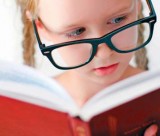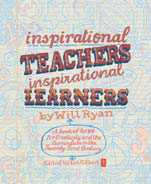Books can play a transformational role in changing children’s attitudes and accelerating achievement, says Will Ryan...
I was in a Y2 classroom a few weeks ago watching a lesson that was starting to fall flat. The teacher was working from a big book and asked the question, “Now who else can find a sentence which includes direct speech in Cinderella?” To which one small boy responded “Can’t we just read the story Miss? It is very good”. That statement from a six year old made me think about one of my favourite quotes. It comes from evidence submitted to the National Commission on Teaching and America’s Future in 1999. It tells us of the power of an inspirational teacher inspiring the lives of learners through high quality literature.
“I was supposed to be a welfare statistic… it is because of a teacher that I sit at this table. I remember her telling us one cold, miserable day that she could not make our clothing better; that she could not provide us with food; she could not change the terrible segregated conditions under which we lived. She could introduce us to the world of reading and the world of books and that is what she did.
“What a world! I visited Asia and Africa. I saw magnificent sunsets. I tasted exotic foods. I fell in love and danced in
wonderful halls. I ran away with escaped slaves and stood beside a teenage martyr. I visited lakes and streams and composed lines of verse. I knew then that I wanted to help children do the same things, I wanted to weave magic.”
 You will be aware that reading standards in this country have risen since 1998 and the advent of the first National Literacy Strategy. However, are you also aware that children’s enjoyment of reading has fallen? According to a PIRLS survey in 2006, seventy percent of children enjoyed reading and the figure has now dropped to around 55%, despite the huge success of Harry Potter. This is deeply worrying as there is research that indicates that a child’s chances of success in life can be dependent on his or her capacity to enjoy a good book.
You will be aware that reading standards in this country have risen since 1998 and the advent of the first National Literacy Strategy. However, are you also aware that children’s enjoyment of reading has fallen? According to a PIRLS survey in 2006, seventy percent of children enjoyed reading and the figure has now dropped to around 55%, despite the huge success of Harry Potter. This is deeply worrying as there is research that indicates that a child’s chances of success in life can be dependent on his or her capacity to enjoy a good book.
I wonder if one of the problems lies in the Cinderella scenario at the start of this article whereby we spend so much time analysing texts for their technical features? Alternatively, teachers may be much busier these days and are unable to spend time absorbing themselves in recent, high quality children’s literature that can then be used to transform pupils’ learning. As children pass through their primary years their entitlement to high quality story times that focus on full texts appears to be being eroded. This is a shame because books can play a transformational role in changing children’s attitudes and accelerating achievement because they allow them to experience, through imagination, other worlds and other roles.
If one of the fundamental purposes of education is to help pupils to understand right from wrong, what is fair and what is unfair, what is beautiful and what is not, then high quality children’s literature potentially has an inspirational part to play. The truth is that good literature will transport children to other places, worlds and times which are often filled with brighter colours, deeper textures and sharper contours. In these worlds they meet characters who are adventurous, talented, principled, intellectually empowered and stimulating in ways that many of the people they meet in real life are not.
 My first tip is that all schools should have their own list of powerful books that include modern, award-winning texts that in the hands of an inspirational teacher will bring learning to life. To make this work, firstly the teacher must absorb himself or herself in the text, and then consider the possibilities of how it could be used in creative ways with the children. From this point it is possible to develop a thematic project that not only engrosses the children in the text, but also provides an emotional hook into other areas of the curriculum leading to deep learning. My second tip is to build the project from a question that helps to strengthen that emotional hook.
My first tip is that all schools should have their own list of powerful books that include modern, award-winning texts that in the hands of an inspirational teacher will bring learning to life. To make this work, firstly the teacher must absorb himself or herself in the text, and then consider the possibilities of how it could be used in creative ways with the children. From this point it is possible to develop a thematic project that not only engrosses the children in the text, but also provides an emotional hook into other areas of the curriculum leading to deep learning. My second tip is to build the project from a question that helps to strengthen that emotional hook.
Let me provide some examples. Many children undertake a thematic study of World War Two. The book Time Train to the Blitz has recently been nominated for the Redhouse Book Award. It tells the story of life during the London Blitz. The book could be used in a topic that questions ‘What were the Values and Qualities of People Living in World War Two?’ Alternatively, the highly acclaimed The Boy in Striped Pyjamas could be used to explore the horrors of the holocaust through a question ‘Is it always right to follow orders?’
This methodology has been promoted through the Power of Reading project and you can find out more from their website (clpe.co.uk).
The approach leads to a marked increase in reading aloud, ‘book talk’, drama and role-play, storytelling, artwork, drawing, mapping and writing including poetry in cross-curricular studies. However it can also have a significant impact on the teachers themselves who reported being re-energised through teaching in a more creative way and watching the impact on the children.
And here are two additional tips. Just when you reach the point where the children are totally engrossed in the text, could you invite the author into the classroom? That magical moment will set the hairs tingling on the back of children’s necks (and many authors will do it for a reasonable fee). Alternatively, by the end of the year the children may have encountered a number of recent high quality books and they could devise their own Children’s Book Awards. Such a system has existed across Rotherham’s primary schools for many years.
 Nelson Mandela once said that the difference between a person achieving their potential and exceeding it was inspiration, and stories play such a significant role in inspiring young lives.
Nelson Mandela once said that the difference between a person achieving their potential and exceeding it was inspiration, and stories play such a significant role in inspiring young lives.
Will Ryan’s new book Inspirational Teachers Inspirational Learners (Crown House Publishing, 2011) has recently been published. It is described as a book of hope for the primary curriculum and creativity in the twenty first century.
Ask yourself the following questions and find out…
All schools teach reading, but does your school really promote a love of books? You could look at the questions below and consider your response and any ideas you wish to develop for the future.
1. Does you school have high quality story times that focus on full texts?
2. Do children get to meet with and work with authors?
3. Does your school develop thematic projects based on high quality children’s fiction?
4. Does your school seize the opportunity to read books to children in unusual places (including the location where the book is set)?
5. Does your school have high quality libraries and book corners and do the adults understand the range of books on offer?
6. Do children make and share their own books?
7. Does the school have collections of strange and odd books that promote interest?
8. Do the children provide reviews of their favourite books and promote book swaps?
9. Do the senior leaders actively promote an interest in new literature?
10. Are assemblies used as a time to model the importance of books?
11. Are parents encouraged to be genuine partners in the reading process?
Why Boarding School Fiction Feels Comfortably Familiar
Ace-Classroom-Support
Outstanding schools: RJ Mitchell Primary
Outstanding schools
Help Pupils Tell Fact From Fiction In The Digital World
Ace-Computing
